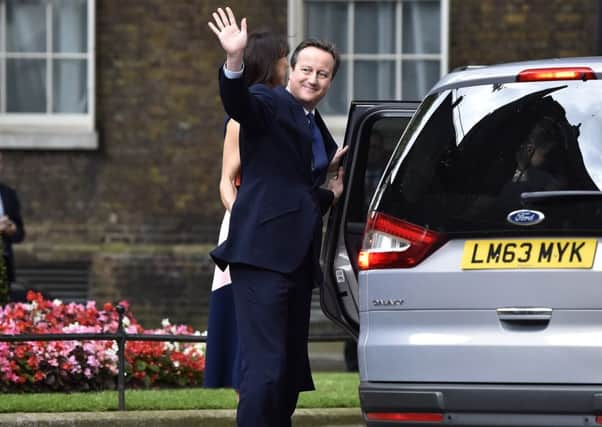Is there life after No 10 if you don't have room at the top?


Harold Macmillan once said that anyone who had played on the big stage “shouldn’t attempt to come back in provincial repertory”.
You can see what he meant. An actor who has taken on leading roles at the finest venues in front of packed houses is going to find playing in smaller productions in less grandiose theatres, how can I put it, something of a culture shock.
Advertisement
Hide AdAdvertisement
Hide AdThe same is probably true in most walks of life where you’re a high-profile figure. For instance, I can’t imagine when Ronaldo calls time on his career at Real Madrid he would countenance playing for Preston North End (no offence Preston fans).
I was struck by this thought after seeing a photograph of David Cameron watching from the back benches as Jeremy Corbyn gave an impassioned speech in favour of nuclear disarmament during the debate on the future of Trident. It can’t have been lost on him that lees than a week earlier he’d been in the despatch box leading the verbal parries with his Labour opponent.
When he took PMQs for the final time, Cameron told the House of Commons he would “miss the roar of the crowd” and later, flanked by his family outside Downing Street, said that being prime minister had been “the greatest honour” of his life.
But how do you follow a job like this? After all “power,” as Henry Kissinger once observed, “is the ultimate aphrodisiac”. Few people get to become Prime Minister and Cameron, the youngest PM since Lord Liverpool in 1812, isn’t yet 50 and could easily carve out another 25-year career. But doing what exactly?
Advertisement
Hide AdAdvertisement
Hide AdThere’s no guidebook on what ex-prime ministers should do. Much depends, perhaps, on the manner of their exit. After failing to win a majority in the 2010 election, his predecessor Gordon Brown remained an MP before stepping down last year and in 2012 was named UN special envoy for global education. He was also a prominent voice in the Remain camp in last month’s referendum.
In the past, prime ministers tended to be older and some, like Stanley Baldwin and Clement Attlee, tended to step aside from the political stage after leaving office. Others struggled to define their post-prime ministerial lives.
When the Tories were pushed out of power in 1974, Edward Heath then lost to Margaret Thatcher in a Tory leadership contest. He never forgave Thatcher for ousting him as leader and refused to serve in her cabinet.
Britain’s first female prime minister was later forced out of office herself by her own colleagues - a betrayal that she could never quite come to terms with.
Advertisement
Hide AdAdvertisement
Hide AdSome former prime ministers, perhaps most notably Winston Churchill, enjoy a second career in their twilight years as a writer or travelling the world giving lectures. Back in the late 19th Century Benjamin Disraeli turned his hand to writing novels which proved popular with Victorian readers, although not his rival William Gladstone who dismissed them as “trash”.
Tony Blair didn’t hang around when he stepped down in 2007. He, like Anthony Eden 50 years earlier, gave up his seat in the Commons and went on to serve as special envoy to the Middle East, a post he held until last year.
Blair didn’t fancy a peerage and it’s perhaps unlikely that David Cameron will be joining what the late Denis Healey once mischievously called “the house of the living dead”.
History may remember Cameron as the man who lost the EU referendum but there are likely to be no shortage of offers flying his way in the coming weeks and months. And there’s always his memoirs, of course, for which some lucky publisher will no doubt fork out an exorbitant sum. Just don’t expect a celebration of Brexit or a Bromance novel.